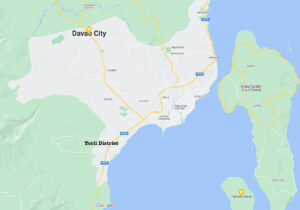Food stalls temporarily closed in Davao City district as diarrhea cases reach 147, one child dead

A 10-YEAR OLD who died from severe dehydration was among the 147 cases of diarrhea recorded as of June 19 in a district in Davao City, prompting the local government to order the temporary closure of food stalls and suspension of street food vendors in the area.
“Pending results of laboratory tests, the City Government has suspended the operations of food stalls in Toril District until further notice,” the local government said in a statement on Tuesday.
Food and drink samples from the sellers “were collected for testing and analysis to rule out any possible source of infection that might have caused the outbreak,” it said.
At the same time, the city is conducting an independent analysis of the water supply in the area.
Distributor Davao City Water District (DCWD) said on July 18 that results from its water sampling and testing in the affected area yielded “negative results for the presence of Escherichia coli and total coliform with chlorine residuals of 0.3-1.5 ppm.”
“The results mean that the water DCWD distributes to its customers is not contaminated with bacteria causing waterborne diseases such as diarrhea. It also indicates that there is enough chlorine to protect and disinfect the water through the distribution network,” the utility said.
DCWD also said it found no major leaks in its distribution line along the affected areas, which could have been a point of contamination from flood water.
The diarrhea outbreak was first reported last weekend with an initial 40 people seeking medical treatment.
The City Health Office has set up an incident command center at one of the Rural Health Units in Toril for immediate medical response and referral to medical facilities for severe cases.
Pending the laboratory results on the food and drinks samples as well as the water supply from the distribution system, the city government has advised all residents to properly boil water for consumption or use bottled water, and observe hygiene practices such as washing of hands. — MSJ




